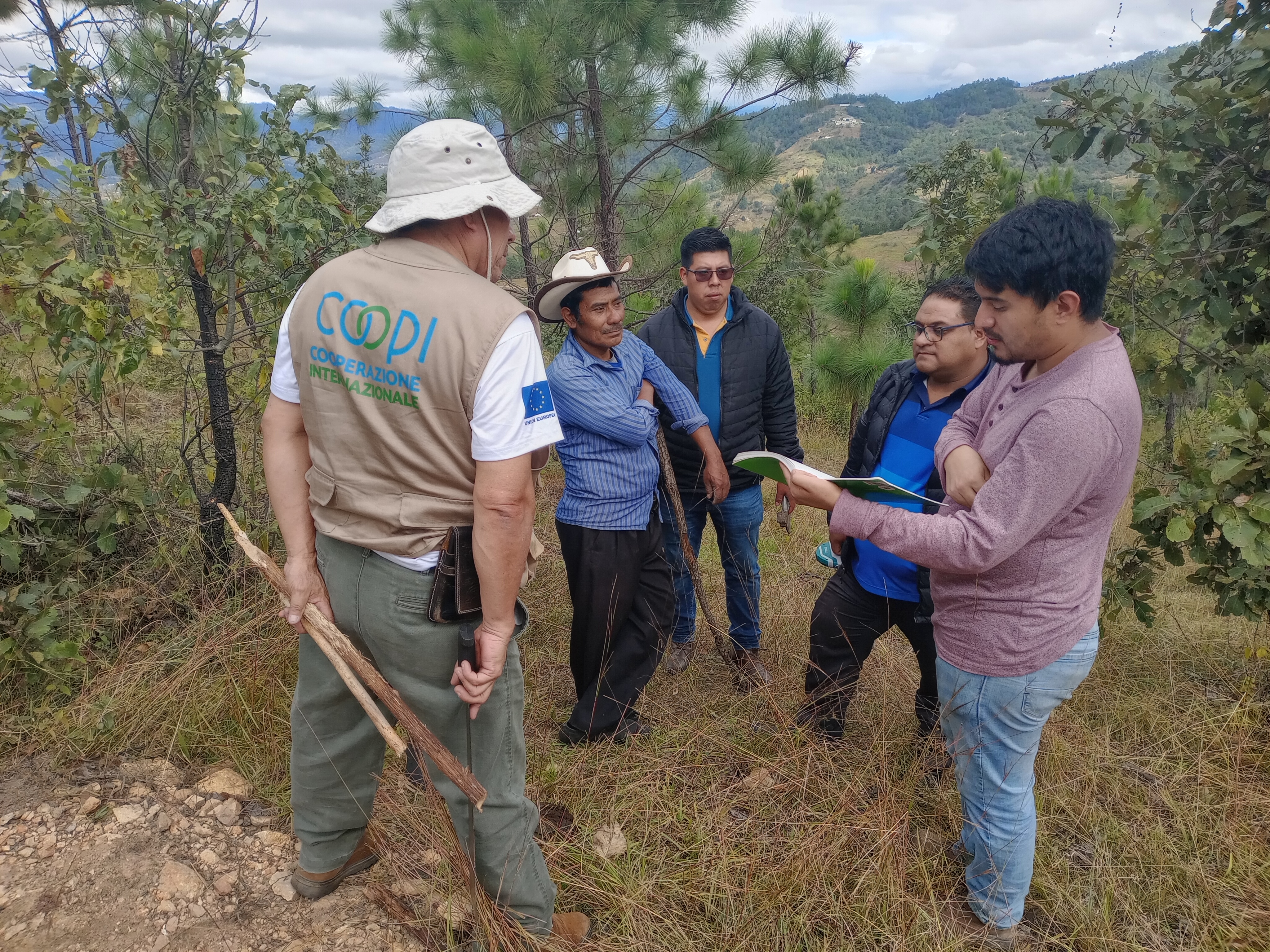Guatemala. Mancomunidades: the project's merits recognized
The project "Addressing Climate Change and Food and Nutritional Security in Common Territories in Guatemala," implemented by COOPI-Cooperazione...
Read more
El contenido de este sitio también está disponible en español. Pasar a español
COOPI has been present in Guatemala since 1973 and, for the past 50 years, has been promoting food security and livelihood development, nutritional security, protection, access to water and sanitation, environment, and disaster risk reduction in the country.
Initially, COOPI provided assistance to communities affected by disasters caused by floods, earthquakes, volcanic eruptions and droughts.
In addition, to reduce the risk of disasters, COOPI has implemented actions to strengthen community and institutional response capacities and increase the resilience of communities to the effects of climate change.
In recent years, social and economic inequalities, coupled with climate change, have amplified the severe food and nutrition insecurity that still plagues Guatemala.
For this reason, COOPI continues to promote humanitarian aid projects by implementing, in coordination with local authorities, actions for the governance of Food and Nutrition Security, thus strengthening management capacities, in a transparent, equitable and efficient manner.
Since 2014, El Corredor Seco in Guatemala has been severely affected by climate change, periodically exacerbated by the El Niño phenomenon that has led to long periods of drought (called canícula prolongada) and substantial crop losses.
COOPI intervenes in Huehuetenango, San Marcos and Quiché to meet the immediate needs of the populations most affected by the protracted food and nutrition emergency.
In particular, COOPI works to strengthen management capacities at the community level, with the objective of generating public policies that improve the quality of life, food and nutritional security of the population, as well as daily water needs.
COOPI also contributes to capacity building and transparency, and promotes the active participation of citizens, especially women and youth, in the sustainable and fair management of initiatives in the territory.
In Guatemala, COOPI develops programs aimed at improving the management of the effects of climate change and promoting sustainable development, especially for communities in the most disadvantaged rural areas.
In particular, COOPI promotes the strengthening of governance capacities, the development of skills and tools for the planning, management and implementation of territorial rural development policies, encouraging the participation of civil society and the most marginalized groups, such as women and youth.
In some areas of high environmental value, sustainable development programs are also activated, offering communities concrete prospects for equitable development, while protecting the biodiversity of such sites.
projects
beneficiaries
Intense climate change and chronic instability have left thousands of women and girls in vulnerable situations, affecting them in terms of social, economic and political inclusion.
In Guatemala, COOPI promotes protection activities aimed at strengthening the empowerment of women and girls at multiple levels:
Due to the devastating effects of the "prolonged heat wave" and the El Niño phenomenon, food and nutritional security are severely compromised in Guatemala. The Dry Corridor (departments of Huehuetenango, San Marcos and Quiché) is the first witness to numerous cases of child malnutrition.
To help save lives and reduce the social and economic impact caused by the prolonged food and nutrition crisis of extremely vulnerable rural families in Central America's Dry Corridor, COOPI has developed coordinated interventions, responding to the immediate needs of the population through:

COOPI's priority areas of intervention in the near future in Guatemala will continue to be:
CONRED - MAGA Ministry of Agriculture, Livestock and Food - MARN Ministry of the Environment and Natural Resources - MSPAS Ministry of Public Health and Social Assistance - SESAN Secretariat of Food and Nutritional Security
Mancomunidad MAMSOHUE • Mancomunidad de MANCOSEQ • Mancomunidad de MANORQ
CISP • ASOCIACION POR LA PAZ Y EL DESARROLLO
COOPI - GUATEMALA A2 Avenida 0-67, Colonia Bran, Zona 3, Ciudad de Guatemala